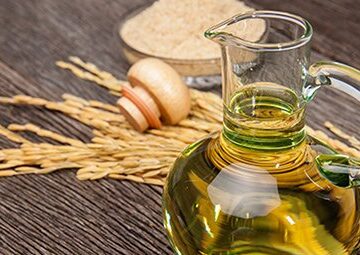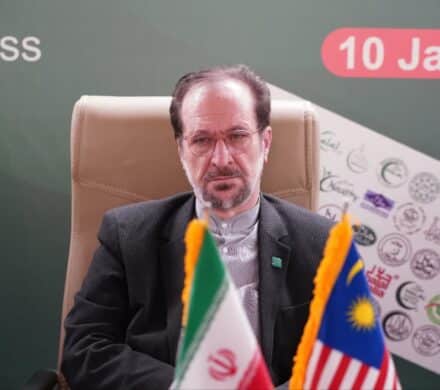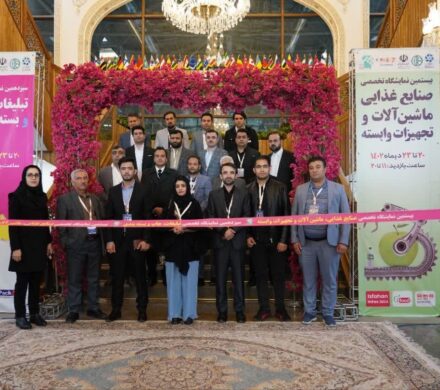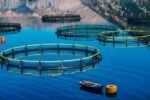Iran’s green olive yellow complexion
Despite all the potential that Iran has in the field of olive cultivation and olive oil production, in practice, all the components of this field have an unacceptable score compared to the world average. For example, while The amount of olive oil production in the world is 3.3 million tons, Iran has produced only 10 […]
Despite all the potential that Iran has in the field of olive cultivation and olive oil production, in practice, all the components of this field have an unacceptable score compared to the world average. For example, while
The amount of olive oil production in the world is 3.3 million tons, Iran has produced only 10 thousand tons of oil, which has caused Iran not to be recognized as an important player in the field of olives and olive oil in the world, while in terms of climate and Having enough land to produce this product has a very good position. This is despite the lack of water and problems related to drought that will be a threat in the coming years
For Iran’s agriculture, it becomes a great opportunity for the government to put the mass production of olives and olive oil on the agenda as a product that does not require water.
-
Iran’s public administration is not motivated
However, Alireza Nabi, an Iranian entrepreneur and activist in the field of olives and olive oil, believes that the lack of motivated and proud management in Iran is the main reason for the lack of success in all areas of the Iranian economy, including the economy of the olive field. He believes that since the war, we have suffered a managerial weakness in the country, which is evident in all sectors from petrochemicals to oil and gas, agriculture, etc. This lack of motivated management and managerial division is evident, and this division and mismanagement is even in social sectors. It is also seen and it is natural that in the absence of such management, there is no hope for the future of this industry. He further pointed to 109 thousand olive trees that were planted without research in areas that basically do not have a suitable climate for growing this product, and this is not the problem of the olive industry but
We see this kind of behavior in all the agricultural sectors of the country, and that is the reason why, unlike the climate of Iran, which is considered a dry country, crops are grown that are extremely water-intensive, and experts have been warning about the consequences of this issue for years, but the government does not listen. Because practically, agricultural management in Iran is unscientific.
-
Why does society not consume olive oil?
Surveys show that the per capita consumption of olive oil in Iran is not more than 180 grams, while the per capita consumption of oil in Iran is 15 to 17 kg, which shows that Iranian people consume other oils and considering the complications that oil consumption has for human health, per capita The drugs associated with the consumption of vegetable oils are extremely high. The per capita consumption of Iranians is 180 grams, while this figure for Europe is 450 grams. In this connection, Alireza Nabi stated that eating olive oil is a requirement, not a choice. A society that does not consume olive oil must spend the same amount of money to buy medicine, while not consuming this product even affects the family’s economy. There are various diseases that can be contracted through beneficial and extra beneficial foods such as olive oil
decreases, but in our country, the importance of food in reducing the risks of various diseases is not paid attention to, and this issue is exactly the difference between developed and developing countries. countries
developed with a specific program by choosing a manager independent of political, ethnic, kinship, etc., they put the growth and promotion of the health of the family and society on their agenda, while in Iran, all kinds of
Ethnic, tribal and political affiliations for managers have caused them to not fulfill their specific duties in any way.
Citing an example, he pointed out the importance and position of super-beneficial products in the world as a barrier against various diseases and said: In some countries, such as Germany, the health department of this country gives a discount of 10 euros to olive oil, whose price is 13 euros on the store shelves, to encourage the consumption of this vital product. The reason for this is that instead of the cost of medicine, the health department spends this amount in allocating olive oil to the community.
-
Bad policies destroyed Zaytoon
This olive industry activist stated that allocating the lands under olive cultivation to the people and delivering the appropriate saplings to the people according to the regional climate is a solution that can lead to an increase in the amount of olive production, he said: Unfortunately, we also have management weaknesses in this category; When the managers of the agricultural jihad provide 110 thousand hectares of land in this country with facilities and seedlings to farmers who do not have a suitable climate for growing olives and in the end 80% of these lands do not produce crops, this shows that the managers lack sufficient knowledge to They do not have a serious movement in this area. Today, this has led to the creation of hundreds of lawsuits against farmers; In other words, the lack of technical knowledge, certified engineers, experts, etc. all made Toubi’s plan, which was not an expert plan, face failure.
He added: In the field of olives, our governments have not used experts who are aware of the world’s science in the field of olives, and they have never even traveled to the olive capital of the world, Madrid, and it is natural that they are not able to implement effective ideas and plans, while the Ministry of Jihad should have experts for a year. He sent to the successful countries in this field to get the necessary training and experience and to carry out logical and scientific measures in accordance with the modern science of the world.
According to him, the weakness of the economy, agriculture, livelihood, industry, trade, etc. are all due to the fact that there are managers in this country who spend several million tomans a month on their fillet meat, while in practice they do not have any successful management ideas. And they have only been able to fix their own economy, not the people’s economy, and the victims of this type of management are the people who are now experiencing economic pressures.
In response to a question about the government’s role in reforming the current practice, this private sector activist believes that whenever the agricultural jihad entered the olive field, it was not favored by the gardeners, and the reason for this was the way the officials of this field treated the farmers. In my opinion, the problem is the change in the behavior of the officials in the decades after the war, otherwise our people will be the same people of the 60s who were ready to send all their capital to the war fronts to defend the dignity of the country. But the type of policy making and the type of attitude of the managers, who often came to power with titles such as jihadi managers or technocratic managers, were never scientific and did not conform to global standards. The result of these rhetorical behaviors is that today, as a small example, we have no place in the field of olives and olive oil in the world, and that some people question Iran’s position in the world market of olive oil. do business
He said that after 70 years, olive trees had a good harvest this year and added: But because the necessary infrastructure for oil extraction is not available, so even if the production in the country increases, there is still no necessary infrastructure for the export of olive oil and olives, and all these issues are due to mismanagement, because the managers of this country in the agricultural sector and industrial agriculture, they have never considered the necessary facilities for the processing industry, transportation and export markets.
He added: At the meeting of the United Nations Olive Council in Madrid, I presented the methods of treating social harm through olives in the presence of 52 countries in the olive oil capital of the world, but there were huge giants present in this meeting, only one of which managed two billion dollars of olive oil exports. but with this amount of land and capital and suitable climate, Iran has not been able to take any place, because the government with
The lack of expertise has entered this field and with interventionist behaviors in different fields, it has caused the competition in this sector to disappear; For example, policies in the areas of export and import in the field of olives and olive oil have caused the same calamity to happen to this area as happened to the car, and the result of these interventions is that we are 16 years behind Turkey – in an economy that is also determined by 16 minutes. As a result, the people of Iran were forced to use oils for 16 more years, which will lead to illness and treatment costs in the future.
In the end, he added: Some Iranian managers have brought Iran’s economy to this point with their incompetence and inefficiency, and it doesn’t matter if these people were fundamentalists or reformists; because they have caused serious problems for the people, while the solution was very easy and different governments in the last two decades could take great steps for the country by changing the cultivation pattern in the agricultural sector, which both reduced the treatment costs of the household and caused Employment boom and agricultural economy and complementary industries were expected, but such an event never happened.
این مطلب بدون برچسب می باشد.















Leave a Reply